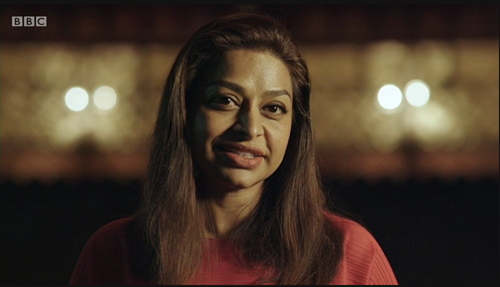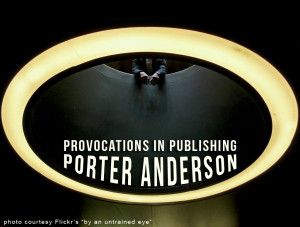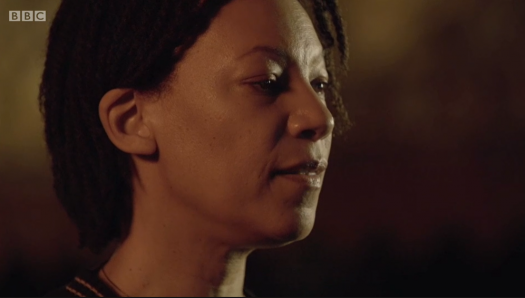The Reward of an Award
By Porter Anderson (@Porter_Anderson) | November 20, 2020 |

The actor Stuart Campbell in his reading from Douglas Stuart’s ‘Shuggie Bain’ in the Booker Prize for Fiction 2020 ceremony. Image: BBC, Booker Foundation
As the Accolades Collide
We are, as you may have noticed, passing through the publishing-award equivalent of what zodiacal scholars sometimes call the “Mercury storm.” At this time each year, many awards programs reach their winner announcements.
Journalists who cover book publishing are especially aware of this because, unlike others, we aren’t able to pick and choose which awards to pay attention to and which to ignore. We’re expected to cover them all. This creates something between bad Franz Kafka and good Neil Simon at times, as we try to remember where we are in each program’s cycle. Is it the announcement of the jurors, the call for submissions, the longlist, the shortlist, the winner?
There are so many awards programs at the international level that we annually cover prizes we don’t even recall doing before. There are prizes for just about everything except Authors Who Go Through Grocery Store Doors Sideways, and I’m afraid that one is getting a sponsor soon and announcing its jury.
Most of the awards are based in the United Kingdom. No one loves an award like the Brits do, and they hand them to each other year-round, nonstop. The FutureBook’s current round this week has each category named “Best of Lockdown.” The Women Poets Awards were just named. They’ve done a readers’ vote to name Chimamanda Ngozi Adichie the “Winner of Winners” in 25 years of the Women’s Prize for Fiction, good call. They gave the Nayef Al-Rodhan Prize for Global Cultural Understanding at the British Academy to Hazel Carby.
The Baillie Gifford Prize for Nonfiction is set to announce its 2020 winner on Tuesday (November 24). And on that same day (Tuesday), the Society of Authors in London will announce its shortlists for six, count ’em, six awards for writings in translations–a total 35 translated titles coming into English from six languages. For those of us who love international literature, this one is an annual bonanza of good content.
There may not always be an England but there will always be book awards there.
- South Africa went for Trever Noah’s young readers’ edition of his memoir in the 2020 SA Book Awards.
- Germany has put out the call for its annual Buchtrailer Awards (yes, for book trailers).
- Vietnam has opened a children’s picture book award.
- Canada’s Cundill History Prize (a covetable US$75,000 to the winner) is going to be handed out during a two-day “festival” of online events, December 2 and 3.
- Right on top of the Cundill, the Financial Times and McKinsey Business Book of the Year winner will land on December 1.
- Aspen Words’ terrific issue-driven Literary Prize has named its longlist–for 2021.
- The esteemed Sheikh Zayed Book Award in the United Arab Emirates has had a record-breaking 2,349 submissions this year from 57 countries, 12 of those nations weighing in for the first time–a good sign that this is an international prize gaining well-deserved traction.
- The Sunday Times / University of Warwick Young Writer of the Year Award will name its winner on December 10. That one is for writers 35 or younger from Ireland or the UK. Of course, the name of the prize is so long that by the time they’ve read it out, the winner may be a year older and no longer eligible.
And we’ll soon be in our 2020 Clean Up on Aisle Two mode, as we try to gather up the various programs that got past us during other news–What? It’s not all about awards?–such as Souvankham Thammavongsa’s win of the Scotiabank Giller Prize in Canada for her short-story collection How To Pronounce Knife. Not familiar with the Scotiabook Giller? It hands over CAN$100,000 (US$76,562) to the winner and CAN$10,000 to each shortlistee.
If you’d like to see some of this coverage at Publishing Perspectives, our prize story tag will get you there. Any time you need to see the latest awards news we have, just hit that link.
Two awards just this week, however, have helped me define something about the value of awards for writers. It goes beyond the obvious (and very welcome) assist in marketing and selling a book with a WINNER seal on its cover.

Ayesha Dharker in her reading from Avni Doshi’s ‘Burnt Sugar’ in the Booker Prize for Fiction 2020 ceremony. Image: BBC, Booker Foundation
The Clarity of Recognition
Two huge contenders in English-language awards had a “near miss” on the calendar this week. The United States’ National Book Awards winners were named on Wednesday night in five categories. And less than 24 hours later–Thursday afternoon, US time–the BBC was streaming and broadcasting its gleaming ceremony for the 2020 Booker Prize for Fiction.
- In fiction, Charles Wu won the National Book Award for his rapier-wry satire Interior Chinatown.
- And the Booker has been won by the Scottish-American author Douglas Stuart for his elegantly poised Shuggie Bain, a book that was also shortlisted for the National Book Awards the night before.

Provocations graphic by Liam Walsh
If you’re interested, we include the shortlists behind the five National Book Awards winners and the Booker in our coverage, respectively, here and here.
I had an “aha! moment”–which may deserve an award for the most cliched phrase in this article–during the Booker’s luminous awards program. Each of the six shortlisted books was given a reading by a professional actor earlier in the week, under the direction of the Old Vic’s Katy Rudd. Not only will there always be awards in England, but there will always be fine actors there, too. And the excerpted tapes of these artists’ readings were arresting.
Especially in Stuart Campbell’s reading from Shuggie Bain and in Ayesha Dharker’s reading from Avni Doshi’s Burnt Sugar, I recalled something from my own days as an Equity actor in the 18th century: clarity.
One of the most addictive blessings a good role provides to an actor is clarity. For a couple of hours onstage, or even during the privilege of hearing someone fabulous read several pages from a penetrating work of literature, if you’ll look into your actor’s eyes, you’ll see a person at peace. Even in the wild and angry bits, the actor is strangely at peace.
The concentration required to inhabit another life, the revelry of knowing that everything you’re saying is eloquent, and the fact that you cannot check Twitter or do anything else while delivering the goods comes down to one thing: everything falls into place. The doubts and fears of actual life have been replaced. Actors come to crave this drug. It’s better than escapism, it’s clarity.
And during Charles Yu’s gobsmacked acceptance speech Wednesday night–he was ready, he said, “to melt into a puddle”–something like that same clarity popped into his eyes.
Less raucous but obviously tingling with relief, Douglas Stuart then had that same look as he spoke to journalists in his press conference afterward about Shuggie Bain, which had taken him more than a decade to write (it’s his debut, no less). He’d been deeply impressed with Stuart Campbell’s formidably committed reading, too, and happily cast him during our news conference as the brother in an imaginary screenplay of the book.
What you sometimes see in a winning author’s eyes is that clarity of being recognized, much like the clarity you see in a fine actor’s eyes as she or he explores a text.

Nina Sosanya in her reading from Maaza Mengiste’s ‘The Shadow King’ at the Booker Prize for Fiction 2020 ceremony. Image: BBC, Booker Foundation
An award says to an author that a certain exercise has come to completion with a satisfying thunderclap of recognition for the work and its impact on readers. Of course, 15 other manuscripts may be on the desk needing attention and the award may be for work written long ago. Olga Tokarczuk won the International Booker and the Nobel 10 years after Flights appeared in her native Poland. But even so, there’s a falling into place conferred by an award, and that’s even better than that trophy.
The gleam in a winner’s eye–so often thought to be the sass of beating others–may actually be the luxury of clarity, of completion. The enhanced vision of a purpose, an effort, recognized.
What does winning an award give you?–or if one hasn’t come your way, how would it feel when it arrived? It feels great, of course, but more specifically, can you get a sense of completion, of clarity, when recognized by such an honor? Or is there something more important to you in it?









Porter, what you say here about clarity gave me a delightful chill. I haven’t won any awards, but yesterday, after slogging through writing yet another synopsis, I stumbled upon the truest-deepest- yet Ah Ha of my own story. I felt buoyant and clear, although there was no one here to witness it but my dog. Which is good enough for now. But if the day ever comes when my work is recognized, I’d like to think I might just exhale. In truth, I have no idea how I’d feel. But I’ll take this feeling of ‘yes,okay’ where I can get it for now. Bravo to the winners and thanks for the links. Hope you’re well.
Hi, Susan,
And brava! for your aha moment. :) So glad to hear it, that’s a wonderful feeling when things “fall into place,” isn’t it? (Dogs are very good to keep around for this reason, they tend to inspire clarity, I find.)
Don’t worry, if you’re able to have some good clear moments along the way in your work, the high will be even better when an award comes along. You’ll find it sorts you out a bit, with a kind of “So that’s what all this work was about” feeling, as others describe and commend your work.
Main thing: Keep at it. And be good to that dog. :)
Cheers!
-p.
On Twitter: @Porter_Anderson
Isn’t the writing field set up with awards from the first, though? Getting an agent is a kind of award, a recognition that there might be something there that the reading masses might want to see. Next comes the reward of having a publisher actually publish your book, then any success evidenced by getting on book lists (if not monetary success.) There’s also a reward in having readers pick up your book and read it, and enjoy it. Maybe that’s why reading reviews can be addictive (although also sometimes destructive.)
I find it hard to look at Awards (in any artistic medium, really) without the thought that for each person who gets the Award, there are probably many works which are just as impressive. That said, I’d still be very excited to have something I wrote be recognized in such a big way. I would adore the fanfare that goes with it. But, I’d also know that eventually the fanfare dies down and it’s back to life as usual.
Hmmm, I wonder how many of these book awards change an author’s life trajectory? Or does life return to normal for them, but they have one more shiny object to put on their mantle? I don’t know. And I’m not sure I’ll ever find out, either. Well, maybe I can get the Authors Who Go Through Grocery Store Doors Sideways award, or at least get on the short list. ;)
Hey, Lara,
Absolutely, various milestones in the career are certainly award-level moments and should really be appreciated as fully as possible, you’re right.
As to your question about the effects of the big awards on writers’ lives, Bernardine Evaristo spoke to that last night at the Booker. She won last year (with Margaret Atwood, a rare dual-award for that prize). She said that her career had really been wildly impacted. The book for which she won, ‘Girl, Woman, Other,’ has sold into 32 languages and territories now because of the fame a Booker win brings, plus her sales went through the roof and there’s film development in the offing. She’s asked to give speeches constantly and has really been able to press her excellent messages as an activist in equality thanks to the major visibility this gave her. BUT, she said, “I still do the cleaning and the cooking” and she said that the best thing for authors to do is enjoy the win and don’t push too hard to do the usual writing schedule until things calm down some, and then you’ll know when it’s time to get back to work. She’s now able to start working on her next one, she said, and it’s been a year since her win.
I do hear you on the ones that got away. One edit I normally make in prize categories as we cover them is to take the “best” thing out. If one program or another gives someone the “Best Work of Fiction” prize, there’s actually no way they can know that that’s the best. Did they read everything? Impossible. So I normally change something like that from the Hoover Vacuum Cleaner Award for the Best Novel of 2020 to the Hoover Vacuum Cleaner 2020 Award for a Novel. The prize is just as good, but without the completely unrealistic hyperbole.
It’s like people who say their awards program was watched “all over the world.” That means every inch. It’s watched in parts of the world, maybe even in many parts of the world, but not all over, unless every fish in the Pacific is tuning in with some kind of underwater Internet connection, lol.
Thanks, and have a good weekend!
-p.
On Twitter: @Porter_Anderson
Absolutely captivated by your perspective Porter. I’ve been reading the NYT Best Books of the Year report and following Shoogie Bane and other award winners through the season and been impressed with how many awards actually make news. Very grateful for the many groups that sponsor them and the journalists who take them seriously. And I thank you for the insight on what it means for authors.
It’s interesting to note that the English love to present awards, and in my mind, being a lover of the English language, it’s awesome that they have for years expanded their awards to include works first written in other languages. In my life of writing, I found this while cleaning my desk, that I copied and pasted on some random piece of paper.
“My pleasure, Elizabeth, your writing is WONDERFUL.”
That’s my reward for the day, week, maybe even for years. Hope you are well, Porter, Beth
Thanks so much, Beth, great to hear from you, and yes, the Booker, in particular, has done a great job with its still relatively young International Booker (for a work translated into English, and it’s given to both the author and the translator, which is wonderful).
This was such a compelling move that the National Book Awards have now added a Translated Literature award under Lisa Lucas’ direction, which was won by Yu Miri and translator Morgan Giles on Wednesday night, the third year, if I remember correctly, that award has been given. This has done a lot to help readers in both of our major English-language markets realize that international literature is important for them to read.
The Booker also has held strong under a lot of criticism for its 2013 “evolution” into a program that recognizes authors working in English anywhere in the world (as long as they’re published in the UK). Many of our British friends have been furious at this because previously the Booker Prize could only go to UK or Commonwealth authors, but now writers all over the world (including the States) can see their work put forward by their publishers, which is a wonderful embrace of internationalism.
Douglas Stuart’s win this year is a lovely bridge in this matter, in that he is Scottish-American, now living in New York, but ‘Shuggie Bain’ is all-Glaswegian.
And what a perfect reward you found for yourself! Grab the clarity of that moment, and write on!
-p.
On Twitter: @Porter_Anderson
Thank you for the article, Porter. This past year, my third novel received a finalist, semi-finalist and honorable mention award in highly regarded contests. Being recognized has helped me gain more readers, which is what it’s about in the end. Nothing like having your words read and appreciated.
The awards have also encouraged me to continue to work on craft and story.
Stay safe. Wishing you and your family the best over the holidays.
Great news, Diana!
Very glad to hear of the recognitions you’re getting this year. Do take that to heart, it can be so confirming, especially when it brings you a bigger readership, as you say.
Congratulations, enjoy the honor and the adrenalin! :)
Do be safe on the holidays. The warnings from our health experts are very clear on what needs to happen this year to get us all to the vaccines. I’ve tried to remind people that they can delay a Thanksgiving or Christmas, or even have another one on any date next year when it finally becomes safer. Now, so close to the vaccines’ arrival, is hardly the time to take risks.
Enjoy and all the best,
-p.
On Twitter: @Porter_Anderson
So many of these awards are reserved, if by nothing else than their submission process, for the traditionally published.
Someone other than the author makes the decision to send a novel to a committee for consideration, and the system is nicely inbred.
Amazon, which has revolutionized so many things in the self-published world, and may or may not be making money at it, does not have an award authors can submit their own work to; at best, they look at popular books after these have been made well-known by some mysterious viral process (ie, marketing).
It’s daunting.
Most of us need John Kennedy Toole’s mother.
Alicia, Amazon has the KDP self-published book awards. And yes, all of it is daunting.
Actually, sorry. It’s the Kindle Book Awards, not KDP.
Hi, Alicia,
As Diana is pointing out below, there actually are awards for self-published books, and more seem to be added with some frequency. Here is an article that lists a number of them https://bit.ly/3fnnR8Y. There’s one started in England (where else?) called The Selfies, and it now has a US wing done in cooperation with PW. You can find that one here: https://selfiesbookawards.com/
I know that many self-publishing authors feel that their books should be incorporated into many standing competitions, such as the Booker and the National Book Awards. In point of fact, there are people in many prize organizations who wish that could happen, too. The problem is practicality.
‘Shuggie Bain’ was chosen from an original submission pool of 162 books this year. The Booker jury is basically engaged for each full year to focus on the process of reading, winnowing down, and selecting.
The National Book Awards, with five categories, not just the one (fiction) category of the Booker, drew 1,692 submissions this year. That one requires five separate juries.
As I noted in my article, the Sheikh Zayed Book Award (which champions Arabic literature) has received more than 2,300 submissions for eight book categories. That one requires juries and a “scientific committee” that makes eventual selections.
So as you can see, the load of submissions for the mainstream awards already is very big, which is why it makes sense for self-publishing awards to operate separately.
And, by the way, in case you’re not familiar with it, the Amazon Literary Partnership grants more than $1 million annually to more than 60 organizations, the key criterion being that they each help authors in some way. You can read about it here, if you like: https://publishingperspectives.com/?s=amazon+literary+partnership
Thanks, and all the best,
-p.
On Twitter: @Porter_Anderson
Ha Ha, to true, Alice.
porter, i’m very behind in my readings but how wonderful to read about these awards. when my kids were younger we read a lot of the newberys and not once were we disappointed. the children’s awards from ala have many categories because it’s so diverse, from wordless picture books to tomes, esp. fantasy. it is good to shine a light upon the best books.
i won a ya writing contest from the institute of children’s literature. what a wonderful feeling it was and the cash prize made it sweeter. but the best would be if the story were published in a magazine or anthology and in the hands of teens, so you see, it’s never enough. i don’t think i’ll ever be satisfied with what i do because i always see the gap, where i want to be. anyway, i wrote about my win here. enjoy: https://vijayabodach.blogspot.com/2016/11/stretching-and-winning.html
Brilliant that you won this, Vijaya,
And it has a great effect on how you feel about your work, right?
There are many, many children’s books awards, absolutely, with the ALA in this country carrying one of the longest lists of them out there: https://www.ala.org/awardsgrants/awards
Get your work out there and look for every moment of clarity you can find, always worth the effort!
Cheers,
-p.
On Twitter: @Porter_Anderson
Hello Porter. I see one take-away after another in your article (where do I collect my cliche prize?). I assume the great majority of the contenders and prizewinners are young or youngish, and this assumption leads me to a question: other than prizes given out in retirement centers for poems and anecdotes about golf or grandchildren, are you familiar with any awards that focus on old writers? I don’t mean oldish writers, I mean bona fide geriatrics. This of course is unrelated to having recently celebrated my seventy-ninth birthday. It’s always a pleasure to read what you write.
Hi, Barry.
Yes, there are such awards.
Here’s one (in England, of course), the Royal Society of Literature’s Christopher Bland Prize for wirters (fiction or nonfiction) who first published when 50 or older. https://rsliterature.org/award/rsl-christopher-bland-prize/
Here’s another, the Paul Torday Prize for debut novelists older than 60. (Needs to be first published in the UK or Ireland, so get yourself a publisher there.) https://www.societyofauthors.org/Prizes/Society-of-Authors-Awards/Paul-Torday-Memorial-Prize
And there are more.
But I’d encourage you not to think of it as related to age. Get published and get your publisher to submit. When a submission is made, no messages go across that tell the jurors the authors’ ages, except in cases in which the programs do have an age restriction (like the Dylan Thomas in Wales, which is set at the young age Thomas died) or the long-named Sunday Times award for authors 35 or younger). In fact, in many cases, a jury will not know your name, your gender, or anything else, let alone your age. They’re reading for the value of the work, not for demographics.
This year, for example, the Booker had no intention of choosing debuts in four of their six shortlisted pieces, but they did.
Just write it, publish it, and follow it where it goes. Don’t worry about age or going through grocery store doors sideways. ;)
-p.
On Twitter: @Porter_Anderson